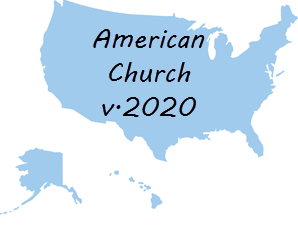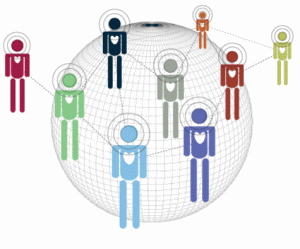Shane Raynor recently wrote a blog post encouraging congregations to adopt a plate free practice. More specifically, Raynor proposes that congregations that still pass offering plates or baskets consider moving away from this practice for several reasons: Many people don’t use cash and checks anymore. Some people believe the negative stereotypes about churches and money. Passing the plate puts people on the spot. Someone could get the idea that church has a cover Read More …
Trends
My Useless Education is Quite Useful (#0709)
"The 13 Most Useless Majors" is a truly unique list worthy of discussion given the amount and significance of conversation surrounding reforming higher education. To create the list, the authors narrowed the field of possible majors using "new research (PDF) from Georgetown University" then applying "data from the Bureau of Labor Statistics, equally weighing the following categories to determine current and future employment and earnings potential for our final ranking: Recent graduate Read More …
The Future Church (v.2020) – 10 Shifts (#0708)
Over the last two weeks I have shared the top ten ways I hope the American church of 2020 will differ from the church of 2012. The list builds on trends in church and the larger culture; is realistic rather than idealistic; and is guided by hope in rather than fear about the future. The list seeks to consider broad shifts within American Christianity rather than specific changes or changes more likely in some traditions and less likely in others. Additionally, it Read More …
Future Church – More About Deeds (#0707)
Church v.2020 - Ten Changes: #1 More About Deeds – Less About Creeds When compared with the American church of 2012, the future church (v.2020) will be more about deeds and less about creeds. "Religious" experiences will be valued over "religious" information, especially among younger generations and those of all ages who self-identify as postmodern. Orthopraxy (correct actions) will precede (more about beginning by belonging rather than believing was explored in the #5 change for Read More …
Future Church – More Egalitarian (#0706)
Church v.2020 - Ten Changes: #2 More Egalitarian – Less Hierarchical When compared with the American church of 2012, the future church (v.2020) will be more egalitarian and less hierarchical. This shift will be fueled by a greater emphasis on the priesthood of all believers, including efforts to help all within the faith community identify and use their gifts in areas of personal interest and passion; use of technology, especially to help those in Read More …
Future Church – More Innovative (#0705)
Church v.2020 - Ten Changes: #3 More Innovative – Less Predictable When compared with the American church of 2012, the future church (v.2020) will be markedly more innovative and significantly less predictable. This change will be evidenced in many ways, including: A move away from a model of risk aversion best known by the so-called seven last words of the church ("we never did it that way before") to a mentality of welcoming new possibilities and giving people permission Read More …
Future Church – More Connected (#0704)
Church v.2020 - Ten Changes: #4 More Connected – Less Geographically Dependent When compared with the American church of 2012, the future church (v.2020) will be more connected and less geographically dependent. The increased abilities of technology along with increased utilization within the church will facilitate many changes, including: Most congregations will move from being identified primarily by a physical presence (e.g., church campus that includes one or more buildings) Read More …
Future Church – More Begin by Belonging (#0703)
Church v.2020 - Ten Changes: #5 More Begin by Belonging – Less Begin by Believing When compared with the American church of 2012, the future church (v.2020) will offer a new order to the faith that begins with belonging instead of believing. Diana Butler Bass rightly recognizes this shift as the one capable of moving the church from "religion-as-institution" to "religio as spiritually vital faith" (Christianity After Religion, 2012: p.204 -- read my review here). The Read More …
Future Church – More Jesus-Centered (#0702)
Church v.2020 - Ten Changes: #6 More Jesus-Centered – Less Focused on Tradition When compared with the American church of 2012, the future church (v.2020) will be more Jesus-centered and less focused on tradition. This shift offers considerable hope for renewal within the church and growth from those who find its new emphasis appealing. While past efforts have tended toward extremes (e.g., Restoration movements on the right and the Jesus Seminar on the left) new quests will be Read More …
Future Church – More About Questions (#0701)
Church v.2020 - Ten Changes: #7 More About Questions – Less About Answers When compared with the American church of 2012, the future church (v.2020) will be a community that is more open to questions and less about providing black and white answers. This change in philosophy will be evidenced in many ways, including: Increased focus on both the content and style of Jesus’ teaching with a particular emphasis on parable. When teaching with parables Jesus invited his followers Read More …









